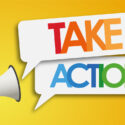
So what really happens in the opening moments of a job interview?
The idea that employers decide to hire or reject in the first 30 seconds of an interview is an urban myth. If it were true, interviews would be much shorter. What happens is that an interviewer makes initial decisions about your personality which are fairly hard to shake.
Psychologists tell us that we make snap judgements whenever we meet someone new, based on minimal amounts of information. Research reveals that interviewers don’t make a complete, decisive hiring decision in the first few seconds of an interview, but they do make strong assumptions prompted by three strong factors – how personable you are, how easy you seem to work with, and your initial visual impact.
An interviewer makes an instinctive prediction from how personable you are – will you be easy to talk to, pleasant to work alongside, good at establishing relationships quickly? Secondly, a decision is made about how open you are. Do you readily respond to questions and volunteer information? Do you help the interview flow? You might think this opening chemistry is entirely instinctive and outside your control, but that’s a great way of keeping your head in the sand. Small adjustments to your interview performance and actually practising these opening moments make a huge difference. Be open and friendly to everyone, particularly reception staff who may be asked for their opinion after you leave.
Finally an interviewer makes a snap judgement about your visual impact. Your walk-in appearance matters – do you look and sound the part? Dressing so that you look comfortable yet carry authority is the secret. Executive Secretaries operate through image as well as outcomes. Pace yourself – slowing down slightly helps you sound measured and confident, while nervous chatter suggests you are covering something up. Speak clearly and at a volume which matches the interviewer. Practise small talk, but also rehearse what you will say in the opening moments of the interview when someone asks one of the two classic questions: ‘Tell us about yourself’ or ‘Why are you interested in this role?’ Do your homework and show real interest in the organisation.
When it comes to your walk-in appearance, planning is much easier. Check out the dress code of the organisation and try to look as if you already work there. Dress slightly conservatively (so you are remembered more than your outfit), and a touch more formally than employees already in post. Break in new clothes and shoes beforehand to avoid looking stiff. When you arrive, de-clutter – leave your coat, umbrella and bag in reception. Just take in a slim folder containing the documents you need, and you will look like an employee rather than a visitor.
Panel interviews, where there are two or more interviewers in the room, are widely used for public sector and charity appointments. They can feel very intimidating, and it feels harder to establish a relationship with several people. Panel interviews are often more formal, so often candidates respond in kind by acting in a much stiffer, more artificial way.
Find about the background of all the people interviewing you. Note the positions of panel members as they are introduced so you can respond to questions by using someone’s name. Focus on the main decision maker (this is often clear from the paperwork or the company website), but communicate with everyone, making eye contact with several people during each answer. Since the panel may be limited to a fixed set of questions, give detailed, well-structured answers if you feel you only get one shot at each topic. You might ask directly: ‘Does that cover what you need?’ Ask one or two good questions at the end, and look confident as you say goodbye to each member by name, shaking each person’s hand and thanking them for their time.
Often candidates are asked to give a presentation to a panel. Prepare carefully, observing time limits, and remember that this is not only about communicating good ideas, but it is also an audition to determine whether you look and sound the part.
Finally, beware of informal interviews. It’s always an interview, whether it’s in the board room, Starbucks, or at the gym. Even if you’re assured that it is ‘just a conversation’, prepare thoroughly.













